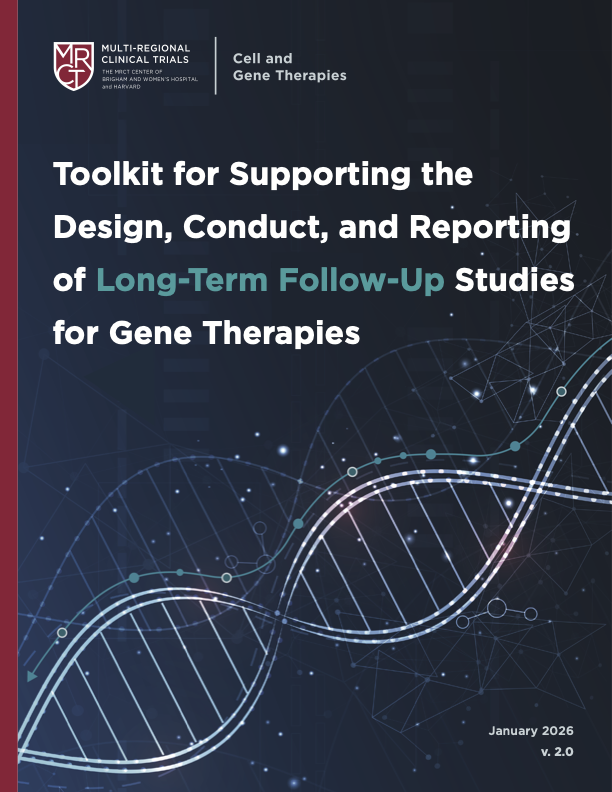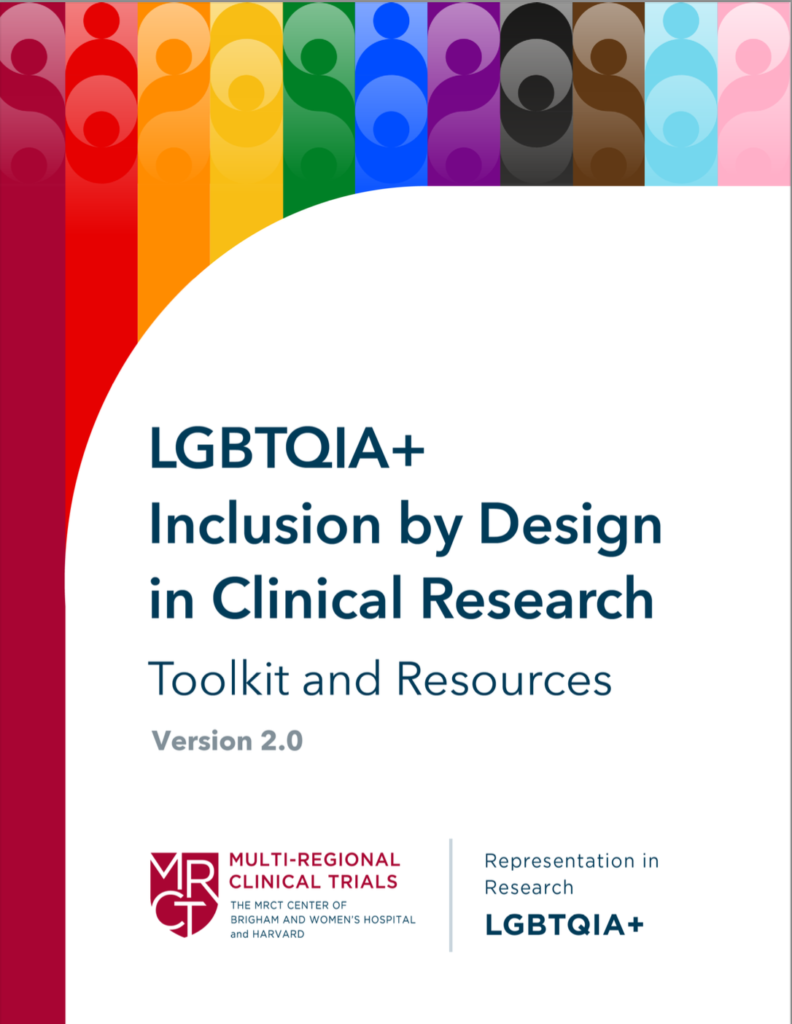Toolkit

Released on: January 23, 2026
Long-term follow-up (LTFU) studies of gene therapy (GT) recipients are crucial for understanding the overall benefit-risk profile of these innovative products. However, LTFU studies are challenging to design, conduct, and execute, and pose significant burdens on both patients and sponsors.
On January 23, 2026, the MRCT Center released version 2.0 of the Toolkit for Supporting the Design, Conduct, and Reporting of Long-Term Follow-Up Studies (CGT), revised and improved based on feedback of a draft that had released for public comment.
The MRCT Center CGT Toolkit is comprehensive and provides background information, practical resources, and recommendations to support best practices for LTFU studies for both investigational and approved gene therapies—balancing the generation of critical long-term safety and efficacy data with the need to reduce burdens placed on participants, caregivers, sponsors, and investigators.
Compared to the draft version, the updated Toolkit v2.0 includes two new resources, an Executive Summary and a Patient Resource, which have also been released as standalone versions. Additions included new and/or revised charts, tables, and resources. The Toolkit explores ideas for how LTFU studies could be improved in the future, raising questions that the field should discuss and address.
The Toolkit enables easy navigation to various sections and subsections via multiple clickable, interactive toolbars. The sections are as follows, with the core elements in bold font:
- Executive Summary (new in v2.0)
- Introduction and Background
- Types of LTFU studies for GTs
- Flowcharts
- Guiding Principles
- Considerations and Recommendations for the Design, Conduct, and Reporting of LTFU Studies for GTs
- Looking Forward
- Key Design Elements of LTFU Studies for FDA-approved GTs
- Regulatory Guidance Relating to LTFU of GTs
- Patient Resource: Long-Term Follow-Up Studies After Gene Therapy (new in v2.0)
- Compiled Glossary of Scientific LTFU-Related Terminology
- Easy-to-Understand (Accessible) LTFU-Related Definitions from the MRCT Center’s Clinical Research Glossary
- Appendices
- List of Acronyms and Abbreviations Used
- References Cited
Please email us at mrct@bwh.harvard.edu with any questions or suggestions regarding the Toolkit.
Navigation Highlights
The Toolkit incorporates several interactive features designed to support intuitive navigation and ease of use:
- Clickable Table of Contents for rapid access to major sections and subsections.
- Right-hand vertical navigation bar on every page, enabling quick movement between tools within the document.
- Interactive table of LTFU study types, mirrored by color-coded tabs that remain clickable throughout the associated pages.
- Secondary navigation bar at the top of each page within the Considerations & Recommendations section. This feature highlights your location within the nine subsections, allows you to jump directly between subsections by clicking the dots, and includes a grey diamond icon that returns you to the full list of subsections.
Related Resources
Panelists:
Pamela Tenaerts, MD, MBA, Chief Medical Officer, Medable
Daniel Kavanagh, PhD, RAC – Senior Scientific Advisor, Gene Therapy, Vaccines, & Biologics, WCG
Lara Gehl, Executive Director, Global Trial Management – Bristol Myers Squibb
𝗠𝗼𝗱𝗲𝗿𝗮𝘁𝗼𝗿:
Carolyn Riley Chapman, PhD, MS – Lead Investigator, Brigham and Women’s Hospital; Member of the Faculty, Harvard Medical School

